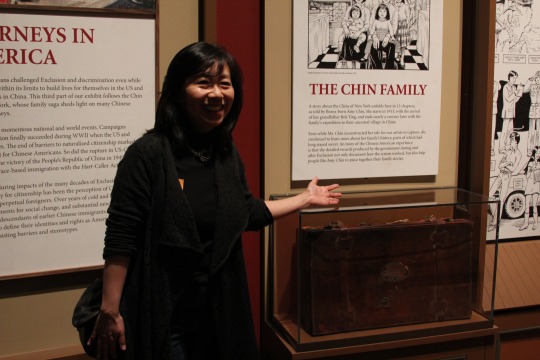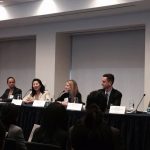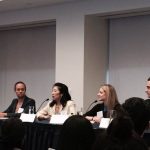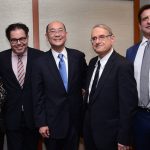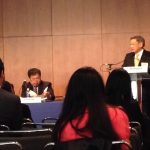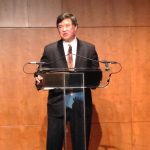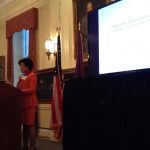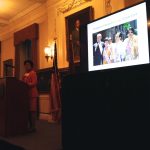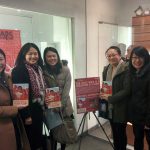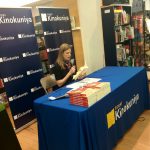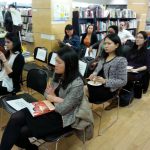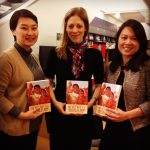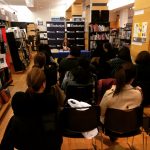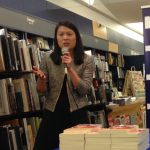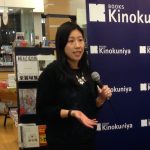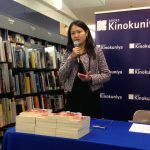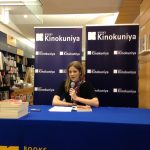//photos.gstatic.com/media/slideshow.swf
On two consecutive Saturdays, March 28 and April 4, AABANY, together with the Asian and Asian American alumni associations of Harvard Business School, Yale, Binghamton and Cornell, organized special group tours of Chinese American Exclusion/Inclusion at the New-York Historical Society.
The exhibit first opened last fall, at the end of September, and will be at the Historical Society for less than two more weeks, closing on April 19. Working in conjunction with the Asian and Asian American alumni associations of the various universities, AABANY was able to bring more than 160 people over the two Saturdays to see this wonderful and worthwhile exhibit.
AABANY was greatly assisted by guides who shared their wealth of knowledge and insight with the attendees. We thank the following people for serving as guides for our groups: Rocky Chin, a founder of AABANY and an advocate for the APA community; Corky Lee, legendary photographer documenting the APA community for nearly four decades; Amy Chin, whose family history is told in the exhibit; and Amy Chu, the writer who helped to create the 12-panel graphic story version of Amy Chin’s family history.
From our guides, we learned how after the American colonies won their war of independence against England, the new nation’s treasury was depleted, and they turned to trade with China as a way to rebuild the nation’s wealth. The new nation also became a beacon for immigration when gold was discovered in California in the mid-19th century. Yet while the growing United States wanted the wealth of China, it turned out not to be as welcoming of the Chinese. A century after the end of the Revolutionary War, Congress passed the Chinese Exclusion Act, enacting the first law in American history that excluded an entire group of people based on their nationality, race and ethnicity. This exclusionary law remained in place until World War II, into the middle of the 20th century.
We also learned that the Chinese who lived in the United States during the exclusionary period were required to carry ID cards. The only other people in America burdened with that requirement were convicted criminals. Among the prominent Chinese Americans that faced this burden was Anna May Wong, a pioneering Chinese American Hollywood actress. Her ID card photo is the image shown in the banner and poster outside the New-York Historical Society.
Amy Chin informed us that many of the bureaucratic practices followed to this day by American immigration authorities stemmed from the period of Chinese exclusion. Therefore, Amy tells us, if the immigration system today is seen as broken, the source of its failure can be traced to the regime that grew out of the decades of Chinese exclusion.
The injustices and civil rights violations inflicted by the Chinese exclusion regime led to cases such as Yick Wo and Wong Kim Ark that have formed the basis for American constitutional jurisprudence that empowered communities of color to fight against racist and discriminatory laws.
Thanks to everyone who attended on March 28 and April 4 to learn about this important but all-too-often ignored part of American history. Thanks also to Toni Kong, Karen Yau and Chris Kwok, for helping to organize and promote the event and also for greeting the many attendees that joined us. Karen is the co-chair of the Government Service and Public Interest Committee, and Toni and Chris are active members of that committee. To learn more about the committee, contact Karen at karen.yau@aabany.org.
(Photos by AABANY)


